Diamond Sports Group’s decision to drop nearly all of its MLB coverage will have massive ramifications throughout the baseball world. We examine them, from what’s next for affected teams to the role other networks could play—and how this could affect upcoming free-agency periods.
—Eric Fisher, David Rumsey, and Colin Salao
|
|
|
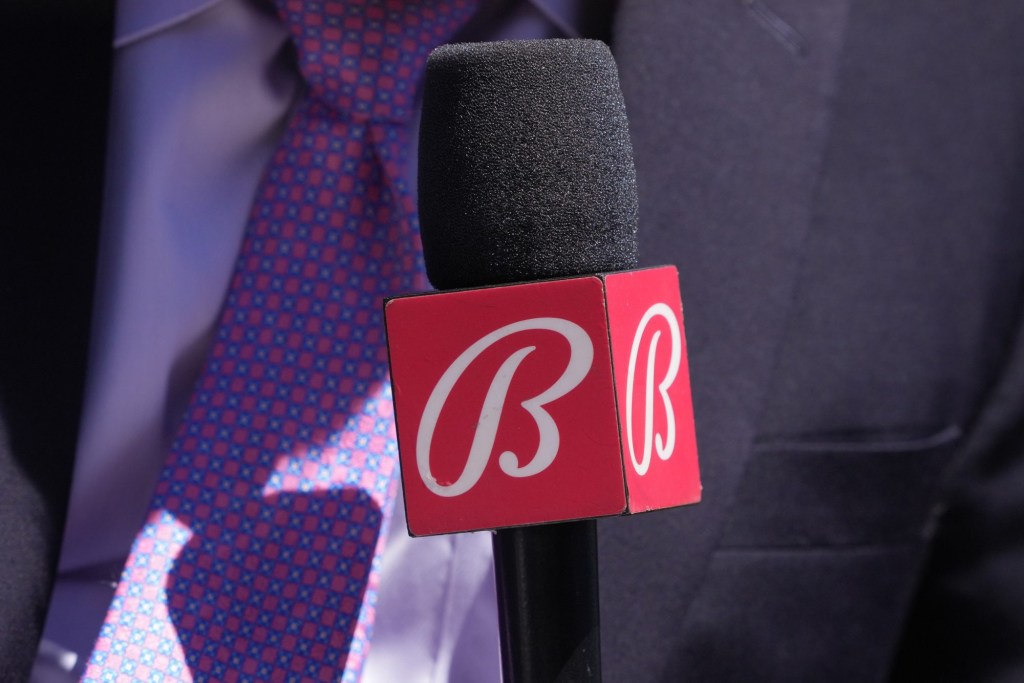
|
Darren Yamashita-Imagn Images
|
Major League Baseball told a U.S. Bankruptcy Court on Wednesday it was “sandbagged” by Diamond Sports Group’s efforts to shed nearly all of its baseball contracts for its regional sports networks. That shock, however, is likely just an acceleration of a turbulent period in MLB local media rights all but certain to require years to settle.
The Bally Sports parent company’s move to retain only the Braves for certain among its baseball rights significantly heightens the paring back of its portfolio while a bankruptcy reorganization continues. Given local media rights typically represent one of an MLB club’s top individual revenue streams, introducing this much market uncertainty all at once has massive ramifications across the industry.
Among the key issues that will need to be sorted:
What do the involved teams do now?
Broadcast plans need to be determined as soon as possible for the 2025 season, and with DSG’s move, 11 of MLB’s 30 clubs are left without a firmly defined local media situation for next year. DSG said in a statement that it “remains in discussions with our MLB team partners around go-forward plans.” That means striking new contracts at a sharply reduced rate, likely by a low- to mid-double-digit percentage and not unlike what the company recently did with the NBA and NHL.
The Angels are reportedly among the clubs considering such a revised relationship, a stance that offers at least some near-term certainty in a very unstable market. But MLB has generally discouraged clubs from accepting these types of deals—not just because of the significant revenue loss but ongoing doubts the league has about DSG’s long-term viability. Other teams, including the Twins and Rangers, are actively considering entirely new situations based at least in part on over-the-air TV distribution. ESPN, meanwhile, has openly advocated to be “at least part of the solution.”
All told, the group of involved teams will likely reach 2025 spring training with a disparate mix of local media arrangements for next season.
What happens with the other MLB teams?
MLB commissioner Rob Manfred has openly sought to collect a critical mass of local rights to reshape the sport’s regional media strategy, in part through a centralized streaming package, and the league is already producing and distributing games for the Diamondbacks, Padres, and Rockies. But there remains a particularly thorny issue with teams such as the Yankees, Dodgers, Red Sox, Mets, and Cubs. Those clubs are not connected to the DSG bankruptcy, earn significant revenue from their local rights, and would have far less incentive or interest to overhaul their own current RSN situations in favor of a vastly different model.
At least in the short term, and perhaps longer, the revenue disparities between these big-market clubs and those hit by the DSG situation will grow.
What happens in the player market?
This is a major issue, and one that will fundamentally involve the MLB Players Association. In the current labor deal, MLB is generally prohibited from taking unilateral action “regarding the allocation or distribution of central revenue.” In other words, that structure must be collectively bargained with the players. Management is well aware of that, and already, MLB and the union earlier this year reached a short-term agreement to provide financial assistance—termed a “media-disruption distribution”—to aid clubs that have lost local TV revenue.
But it’s quite possible that upcoming free-agent player markets will be impaired by the revenue loss that many teams are facing. Once the next round of labor talks begins in 2026, how to deal with the local media issue undoubtedly will be a major topic—if not the leading one.
|
|
|
|
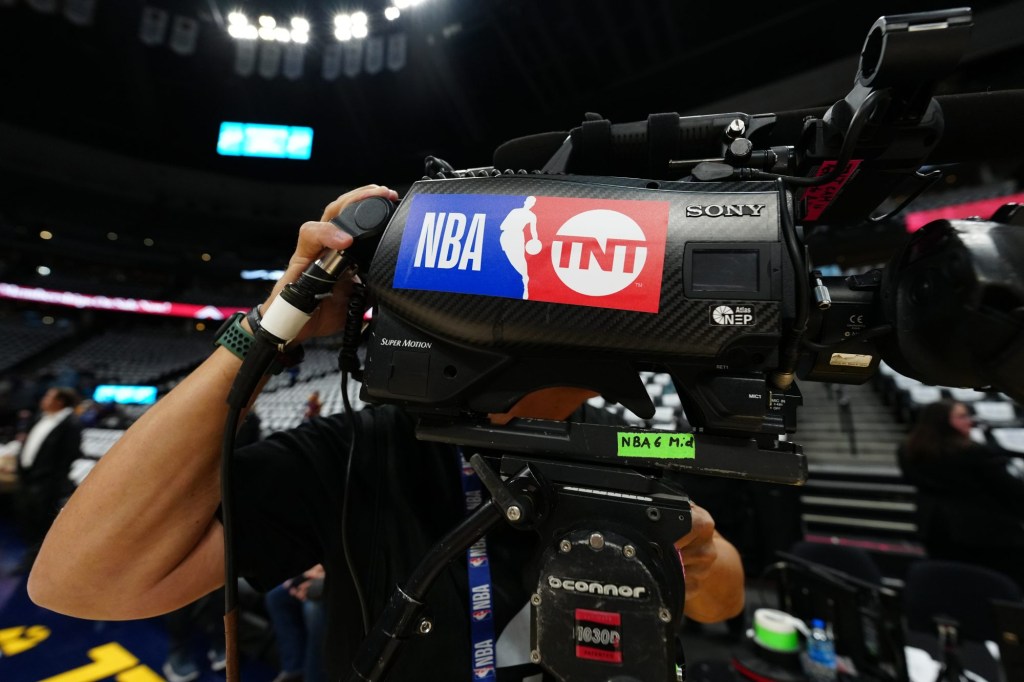
The NBA has made its final push to have TNT Sports’ lawsuit against the league dismissed, arguing the network’s purported match of the Amazon rights deal was instead a counteroffer.
Responding to TNT Sports’ recent claim that the league inserted a series of “purposely onerous and immaterial” contractual provisions—in effect “poison pills” designed to thwart the network and protect Amazon—the league said prior case law explicitly allows for extensive customization in its dealmaking.
“Under New York law, ‘every competitor has a right to attempt to win a contract by offering terms which its competitors can’t meet,’ and the seller is ‘free to seek and accept such terms as were consistent with its legitimate business interests,’” the league wrote in a filing late Wednesday with the Supreme Court of the State of New York, where the case is being heard.
In making that argument, the NBA cited a previous case involving the league itself, Am. Broadcast Co. vs. Kennedy from 1973, in which CBS gained NBA media rights previously held by ABC. Similar to the current claim from the Warner Bros. Discovery–owned TNT Sports, ABC then alleged a conspiracy and claimed NBA owners dealt in “bad faith,” but that suit was dismissed.
Following Up
The NBA’s latest argument seeks to advance a prior motion to dismiss filed in late August, one in which the league argued TNT Sports improperly sought to rewrite several key provisions of the Amazon agreement to facilitate a contract match. Many of those arguments were revisited in the latest response.
“[TNT Sports does] not deny, as [the NBA] stressed, that [the network] revised eight of the Amazon offer’s 27 sections, changed 11 definitions, struck nearly 300 words, and added over 270 new words,” the league wrote. “Plaintiffs’ redline was a counteroffer, not a match. That should be the end of this case.”
Without an immediate ruling to dismiss by Judge Joel Cohen or a settlement, the case will almost certainly intersect with the 2024–2025 NBA season. The NBA preseason begins Friday, and the regular season starts Oct. 22.
The two sides have agreed to an expedited schedule, and a trial, should the case get to that point, is tentatively set for early April. Appeals, however, could see the dispute potentially drag into the 2025–2026 season, when the new set of national rights that also include ESPN and NBC Sports in addition to Amazon are due to start.
Amazon’s “C” package with the NBA—estimated at more than $1.8 billion per year and including a conference final every other season—also features early-round playoffs in line with what is currently on NBA TV, weekly regular-season broadcasts, the Emirates NBA Cup, and WNBA rights, among other assets.
|
|
|
|
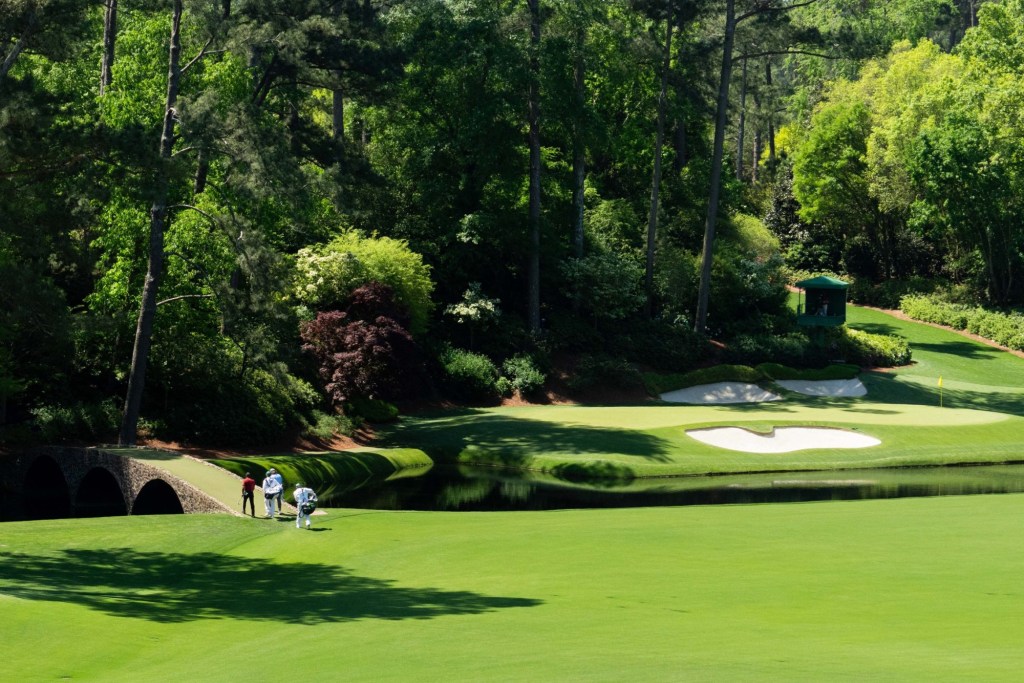
The 2025 Masters is still scheduled for the second week of April, despite significant damage to the course from Hurricane Helene that has been confirmed by the club.
Augusta National Golf Club chairman Fred Ridley, speaking in Japan ahead of the Asia-Pacific Amateur Championship that teed off Thursday, said the course was affected just as much as the rest of the local community, which was in the direct path of the storm after it made landfall a week ago.
More than 1.2 million households still had no power Wednesday in the Carolinas and Georgia, and the hurricane has killed at least 166 people, according to the Associated Press. Augusta National and the Masters announced a joint $5 million donation to local relief efforts in partnership with the Community Foundation for the Central Savannah River Area.
“There was a lot of damage and we have a lot of people working hard to get us back up and running,” Ridley said. The course typically reopens for members each October after the summer break. “If it’s humanly possible, we will be back in business sooner rather than later,” he added.
The first men’s golf major of 2025 is expected to go on as planned. “I’m confident that the Masters will be held, [and] it will be held on the dates that it’s scheduled to be held,” Ridley said.
The Masters, PGA Tour, and LIV Update
Ridley also addressed the ongoing divide in men’s professional golf, with many top players still split between the PGA Tour and LIV Golf, even as negotiations with the Public Investment Fund of Saudi Arabia continue.
The Masters will remain open to inviting golfers outside of its normal standards, with LIV events still not awarding world rankings points. “We are going to look to find ways to get some of these players in that might not otherwise be qualified,” Ridley said.
Not long after Ridley spoke, players and leaders from the PGA Tour, LIV, and the PIF began congregating at one of the world’s other iconic golf courses—the Old Course in St Andrews—in what could be a boost to slow-moving talks between the parties.
The Alfred Dunhill Links Championship, a pro-am on the DP World Tour, has 14 LIV players—including Jon Rahm and Brooks Koepka—in addition to Rory McIlroy and other PGA Tour faithful.
But perhaps even more important are the amateurs (who play with a pro) in the field. Headlining that slate are PGA Tour commissioner Jay Monahan and PIF governor Yasir Al-Rumayyan, who are paired together in the same group—Monahan with the PGA Tour’s Billy Horschel and Al-Rumayyan with LIV’s Dean Burmester.
|
|
|
|
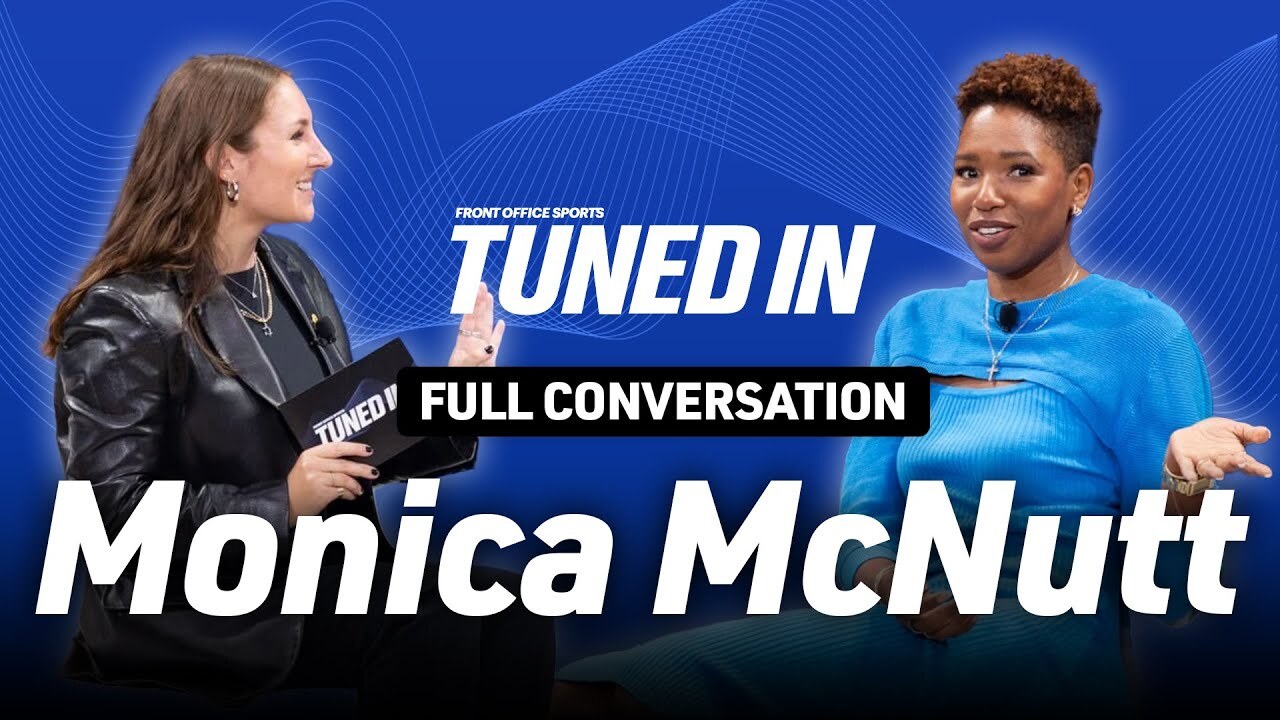
|
ESPN personality Monica McNutt sat down with Front Office Sports reporter Amanda Christovich at the FOS Tuned In summit to discuss how she gets along with Stephen A. Smith, her viral moments in the past year, and whether the WNBA and NBA should stick together.
Watch the full interview here.
|
|
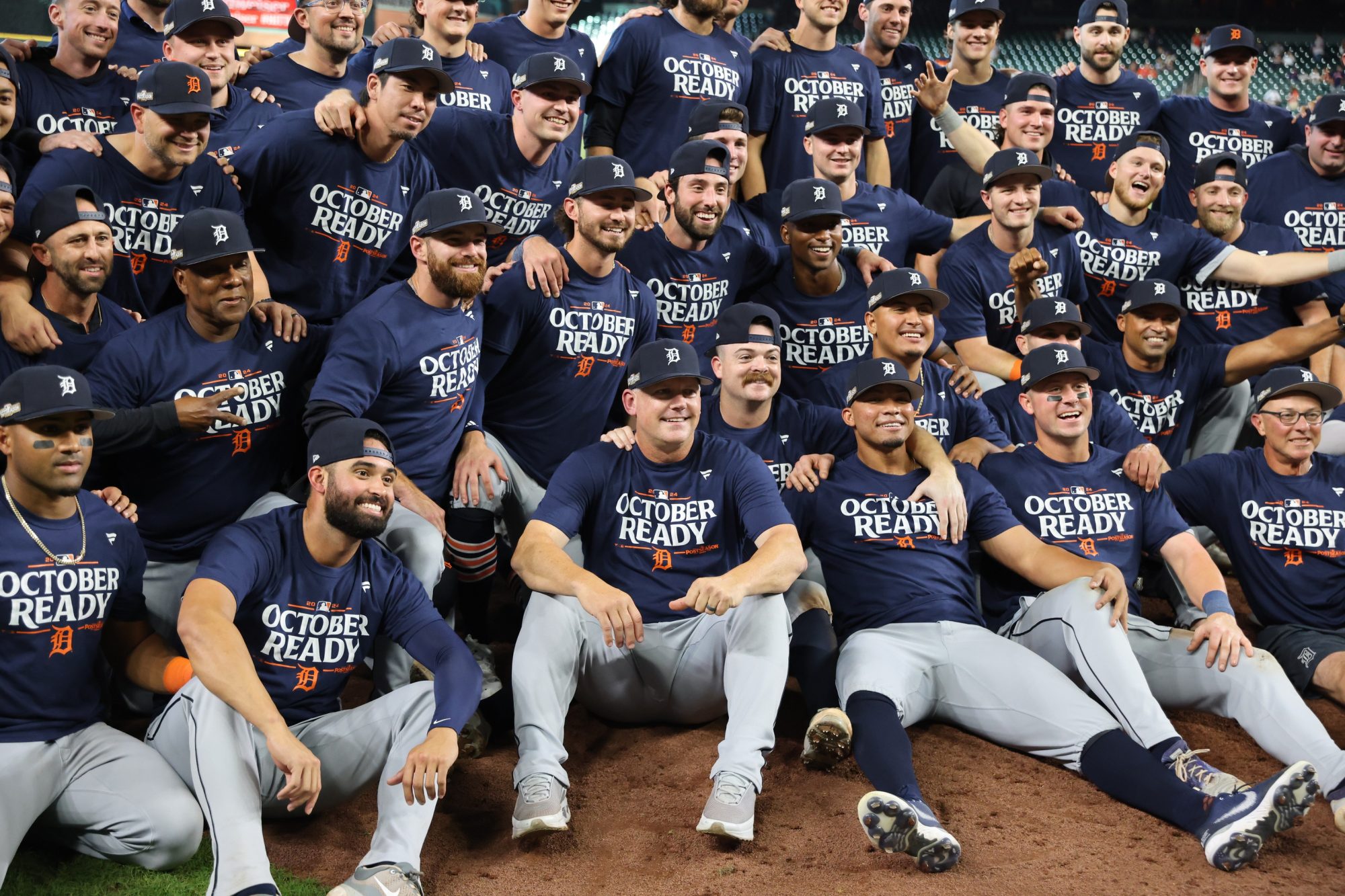
|
Tigers and Royals ⬆ The two AL Central teams extended their remarkable resurgences, each completing two-game sweeps in the wild-card series. The Tigers toppled the Astros, extending a run in which they have been MLB’s best club since mid-August, while the Royals closed out the Orioles, building on a 30-game improvement in the regular season compared to 2023. Both the Tigers and Royals are now assured of playoff home games, and ticket sales for the Division Series have been brisk in both Detroit and Kansas City.
AEW ⬆ The wrestling promotion officially signed a multiyear media-rights deal with Warner Bros. Discovery worth a reported $150 million per year, according to Variety. AEW, which launched in 2019 and immediately became WWE’s top competitor in professional wrestling, will continue airing its programs on TBS and TNT. But the new deal will include live streaming of AEW shows on Max starting in 2025, the same time WWE will begin airing on Netflix.
Big3 ⬆ The 3-on-3 basketball league cofounded by rapper Ice Cube is in talks to add teams in Philadelphia and Alabama, according to Bloomberg. The Big3 is working with former 76ers legend Julius Erving for its Philadelphia-based team and Hawks icon Dominique Wilkins for a Birmingham team. The 12-team league sold its first franchise, which is based in Los Angeles, in May for $10 million and has since added teams in Houston, Detroit, and Miami.
Nikolaj Sørensen ⬇ The Canadian figure skater has been suspended from professional competition for at least six years for “sexual maltreatment.” The case stems from an allegation that Sørensen sexually assaulted a U.S. figure skating coach and former skater in 2012. Sørensen has denied the allegations, which have yet to be proved in court.
|
|
- Jackson Chourio hit two home runs to lead the Brewers to a comeback win over the Mets on Wednesday. A year ago, the 20-year-old signed an $82 million deal, the largest contract for a player who had yet to reach the majors.
- Shohei Ohtani topped MLB’s list of most-popular jerseys, followed by Bryce Harper and Aaron Judge. Check out the top 10.
- Texas provided an inside look at the J. Dan Brown Family Player Development Center, the Longhorns’ $8.3 million baseball training facility. Take a look.
|
|
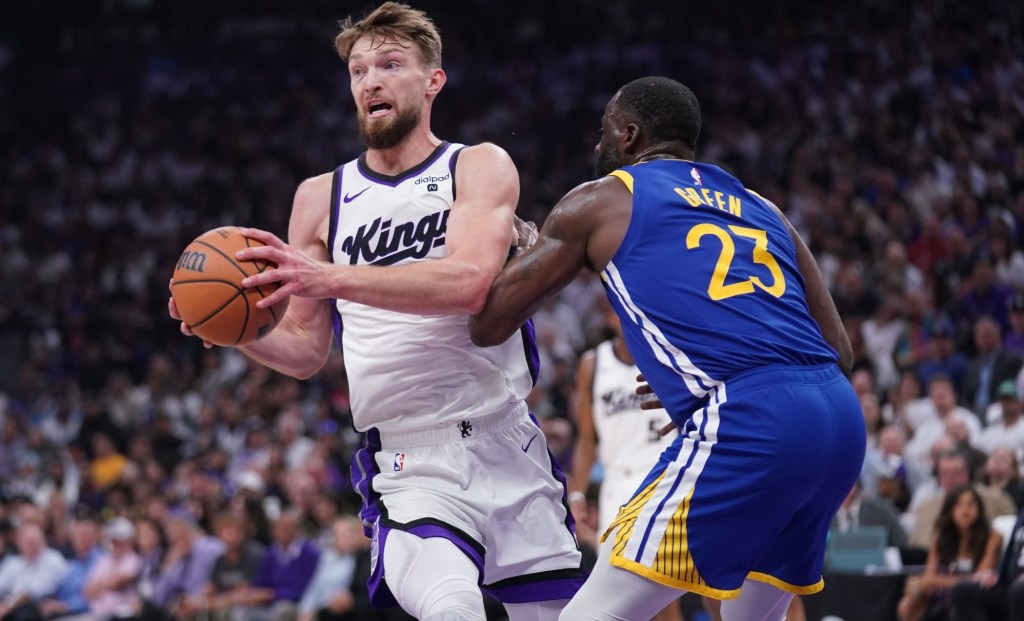 | The Kings star is profiled in the new documentary series. |
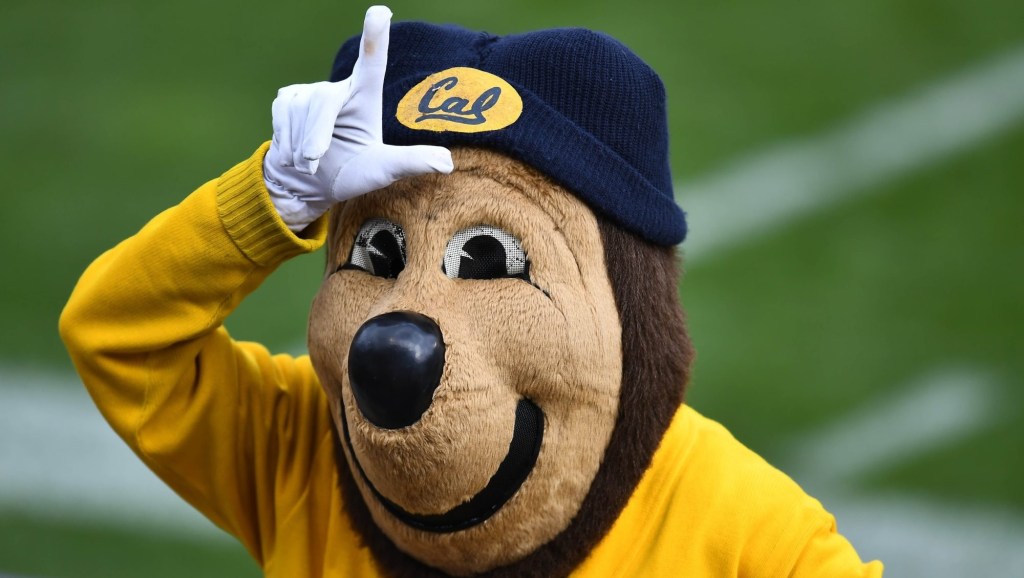 | “College GameDay” makes its first trip to Berkeley on Saturday.
|
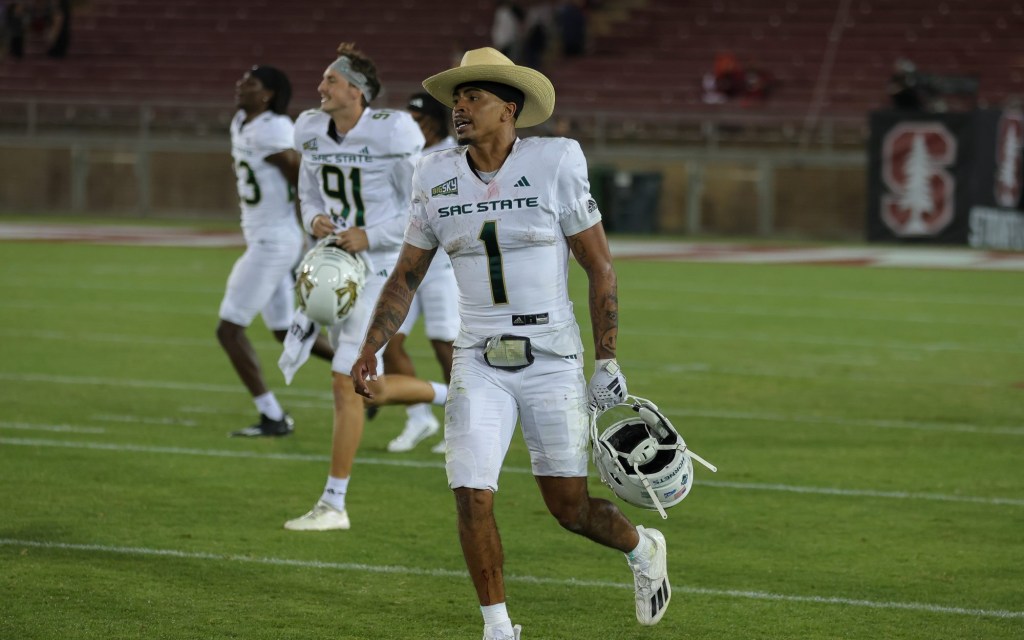 | The so-called Sac-12 announced it had raised $35 million in NIL for the university. |
|
|











